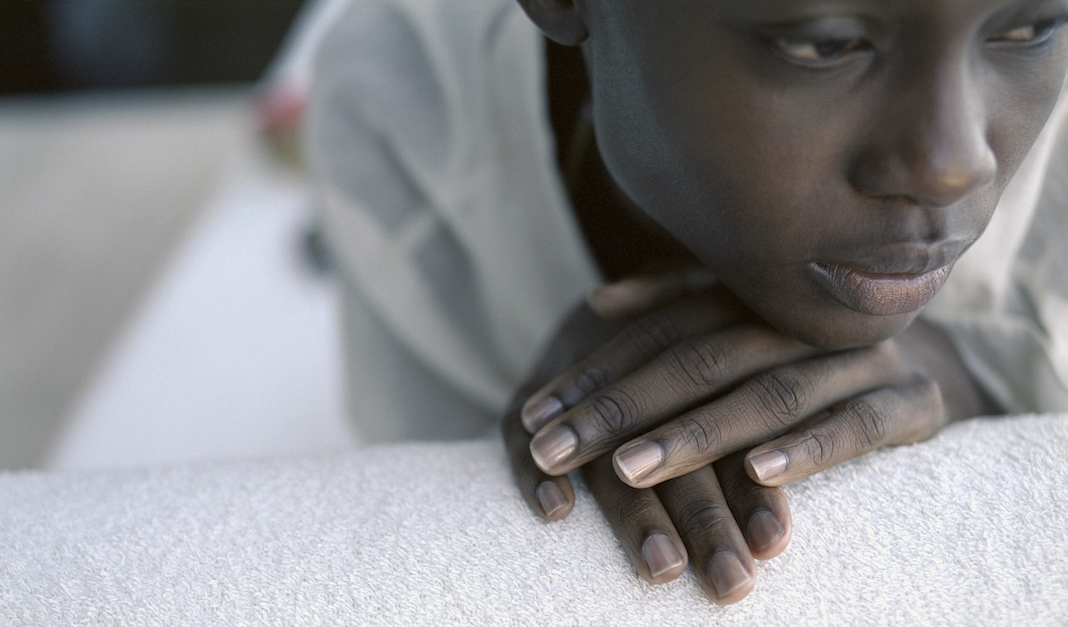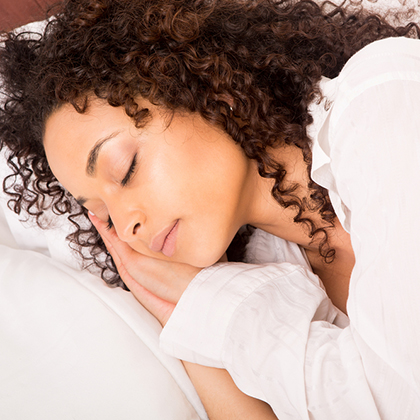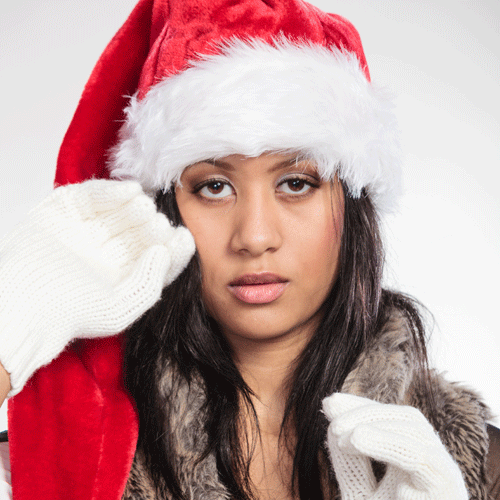How Seasonal Depression Affects Your Relationships
Share the post
Share this link via
Or copy link

Gettyimages.com/A woman relaxing
You don’t have to live in an isolated cabin in a severe climate to experience mood changes during the fall and winter. In fact, approximately 14 percent of Americans experience some degree of seasonal affective disorder (SAD). While it may not be as intense in warmer climates, it can still cause some winter blues that make it difficult to take joy in the things that usually make one happy—and even all the wonderful things that can come with the fall and winter, like colorful leaves, snowfall and holiday parties. SAD is different from depression because it only affects individuals for selected months out of the year. The rest of the year, they can lead perfectly normal, happy lives and have satisfying relationships. But when SAD hits, it can hit some people so hard that it hurts their relationships. Here is how seasonal affective disorder affects your relationship.

Corbis Images
It’s abrupt
Your partner can feel like just yesterday you popped up in the morning, excited to take on the day. In fact, if you suffer from SAD, you’re probably very happy during the spring and summer. You come to life during the warm months, so when the change of seasons—and, subsequently, your moods—occurs, your partner can feel like he’s waking up next to a different person.

Image Source: Shutterstock
The change of seasons is hard for your partner, too
Even if your partner doesn’t suffer from SAD, he is probably mildly affected by the change of seasons. His friends aren’t planning as many barbecues, he isn’t getting as much vitamin D, and the sky just looks dreary. So, in addition to his own reaction to the change of season, he has to deal with feeling like he’s lost his romantic partner to depression.

Corbis Images
It can hurt your sex life
Love MadameNoire? Get more! Join the MadameNoire Newsletter
We care about your data. See our privacy policy.
You likely do not have much sex during fall and winter if you suffer from SAD. You’re prone to negative thought patterns and anxiety, none of which is conducive to the relaxed state your body needs to be in to feel aroused. Not having sex, however, is harmful to your emotional bond with your partner and that strained bond can make SAD feel even worse.

Corbis Images
In fact, it makes orgasms difficult to come by
Even when you do have sex, you may struggle to orgasm. You need to be very present in order to have an orgasm, but your thoughts quickly wander away during sex. This can make your partner feel insecure that he’s no longer good in bed, or even feel selfish for convincing you to have sex.

Image Source: Shutterstock
You sit out holiday season
Every week you’re invited to holiday parties. Between Halloween, Thanksgiving and Christmas time, you and your partner are invited to more parties than you’re invited to all year long. But you sit many of them out because of your condition. This means your partner often has to go stag and face all the friends who pity him for showing up alone.

Image Source: Shutterstock
You don’t go to bed together
Those with SAD often experience extreme fatigue and may sleep 10 to 12 hours a night. This means that you and your partner likely are not going to bed at the same time. You’ll be in bed long before he comes to bed, and sleep in long after he gets up. So you lose those little bonding moments you get in bed.

Image Source: Shutterstock
You can put on weight
SAD can make you crave heavier foods and not want to exercise. Naturally, this can lead to some weight gain. Weight gain can make you feel insecure in your relationship, which, again, isn’t good for your sex life.

Image Source: Shutterstock
Your partner fights to not take it personally
You don’t laugh at your partner’s jokes or seem to take as much joy in seeing him. You don’t respond as enthusiastically to his touch or send as many sweet text messages. He has to try very hard not to take it personally. You aren’t upset with him. In fact, you don’t feel anger; you just feel an absence of joy.

Your partner wants to get out, but needs to stay in
Your partner wants to get out. He wants to see friends and exercise. He wants to do some of the things that help him fight the winter blues. But he often feels guilty leaving the house, because you’re staying home, alone on the couch, and depressed. He feels very torn each time he goes to do something he enjoys.

Image Source: Shutterstock
Your partner can feel lonely
When you suffer from SAD, you’re rarely present. You can feel removed from your body, or like you’re under water when you’re having conversations with people. This can leave your partner feeling very lonely throughout fall and winter. You’re there, but you’re not really there.

Credit: Shutterstock
Things like ski trips go out the window
Your partner either has to sit out or go alone to fun winter activities like ski trips with friends or weekends in cabins. A lot of couples build lifelong memories doing things like that, but your partner feels like he’s left out of that.

Image Source: Shutterstock
It dominates your décor
Your SAD may drive you to make some sudden changes in the decoration of your home. You want brighter lights. You want to paint some walls yellow. You want more plants. You want more decorative pillows. You want to throw out some pieces of furniture entirely. Your partner has to navigate helping you make the home a happier place for you, without giving up his own style entirely.

Shutterstock
You go right to bed
Your partner probably looks forward to the after-work wind-down with you. This is when you sit on the couch, have a glass of wine, cook dinner together, vent about the day and catch up. But you’re either asleep or mentally checked out when he gets home.

Image Source: Shutterstock
You can’t really drink
You can’t really even have alcohol because it intensifies your feelings of depression. So your partner is alone in his nightcap. Or you’re always the designated driver when you go out.

Credit: Shutterstock
It’s just not all mistletoe and sledding
Many people don’t realize that when you have SAD, fall and winter aren’t the magical months they are for others. They aren’t filled with eggnog, mistletoe, nature walks, cute snow outfits and gingerbread houses. It’s a dark time for you and your partner—it’s a time you dread all year long.
-

Meet Dominique Fils-Aimé, The Haitian-Canadian Star Redefining Jazz For A New Generation: ‘This is My Vision' [Exclusive]
-

Cooking With Purpose — How Brittney Williams Honors Her Caribbean Roots Through Food
-

9 Famous Lesbian Women Who Were Married To Men
-

Bucket Baddies With Big Energy — The 30 Hottest NBA Players In The Game Right Now








